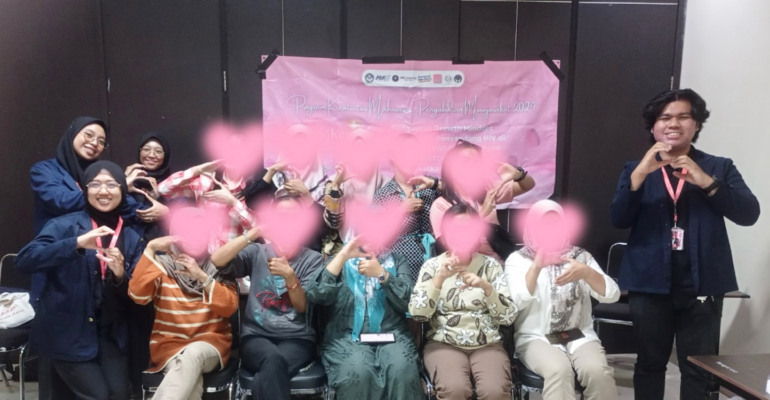IPB Students Design Srikandi Sejati Program: Building Growth Mindset of Women with HIV in Bogor

IPB University students, in a series of Student Creativity Program for Community Service (PKM PM), launched the Srikandi Sejati program for women with HIV in the Bogor area.
The program runs from May to July 2024 with a focus on women and children with HIV. The Srikandi Sejati program is in collaboration with Yayasan Sahabat Ibu, Remaja, dan Anak which is part of the Lembaga Kajian Aksi Strategis (LEKAS) Foundation under the guidance of Dr Nur Islamiah, a lecturer at the Department of Family and Consumer Sciences.
“Srikandi Sejati is an innovative program that focuses on assisting women with HIV by strengthening the growth mindset to face various social challenges,” said Atina Aulia Hasanah, one of the student team representatives.
Atina revealed that the negative stigma of the community towards people living with HIV (ODHIV) is still a big challenge. This stigma, she said, arises from a lack of understanding about HIV, as well as prejudice and discrimination.
“One of the common forms of stigma experienced by PLHIV is social discrimination. They often face discriminatory treatment from their surroundings. In addition, ODHIV are often shunned by friends, family, or neighbors due to unfounded fears about HIV transmission,” she said.
According to one of the foundation’s administrators who is often called Kang Darwin, sometimes ODHIV take Antiretroviral (ARV) drugs at health facilities far from where they live. This is done because of the fear of meeting people they know.
Atina explained that Srikandi Sejati implements the ACTORS theory from Sarah Cook and Steve Macaulay in the form of Authority, Confidence and Competence, Trust, Opportunities, Responsibility, and Support. Each ACTORS dimension is realized in Truth or False, Circle Talk, Home Sweet Home, Trust, Journaling Time, and Dear My Beloved One activities.
This program, she said, helps women with HIV realize the importance of having high self-confidence and a growth mindset. “When the participants have reached a high level of self-confidence, they will develop a growth mindset, and will be better prepared to face the challenges of life,” she said.
Furthermore, Atina said, after the PKM student activities are over, this program will be continued by ODHIV who have received the program to be shared with more closed ODHIV. Thus, the benefits felt can be widespread. (*/Rz) (IAAS/SNI)



